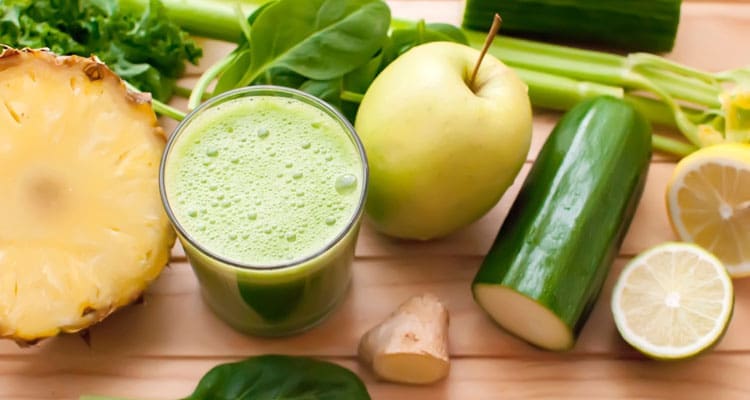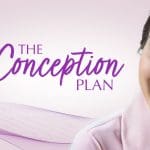The start of a brand new year is often popular for getting on the latest health craze or diet, and prioritising our health and fitness. It’s also a popular time to start trying for a baby. But should we necessarily combine the two together? Though I’m not a fan of following diet trends or anything that places stress on your body, I do think that detoxing preconceptionally before birth is a good idea with a multitude of benefits, but you shouldn’t do it when you’re pregnant (the emphasis then becomes on nurturing and supporting growth of the baby). The biggest reason behind this is that there is no doubt that the majority of us carry a toxic load of chemicals on us without even realising it, all of which can impact your and your partner’s fertility.
The average women carries more than 120 chemicals every day when she steps outside of the house, due to a combination of food she eats, that may contain herbicides, GMO and pesticides, household cleaning products, pollution and skincare products whilst the average human placenta, so what your baby feeds off, contains more than 200! These are astonishing figures which can directly impact on not just your ability to become pregnant, but also your baby’s health. What a lot of people don’t realise is that the work needed to have a baby starts months and even years before you actually technically should start trying. This is because it can take some time to make lasting changes and see the benefits, especially as fertile health is regulated by hormones, and these can require some time to reach a perfect balance, in particular if they’ve been affected by external toxins. This isn’t about a fad, but instead about a lifestyle approach to fertile health that will also be of benefit to your weight, as a side effect of detoxing is also weight loss.
When we talk about detoxing, we mean trying to limit exposure to any harmful substances in our direct environment, and instead focus on alternatives that are as clean and natural as possible. The major and most obvious change here is the change to your diet. Trying to eat as cleanly and as organically as possible is really important. I discuss this in the my videos, along with providing you with some delicious recipe ideas you can apply right now at the start of the year, to help get yourself in the best shape possible prior to conception.
Many health conditions affecting children can be traced back to environmental toxins and exposure to these. There has been an escalation of conditions affecting children, in particular allergies and autoimmune conditions and also less well understood conditions such as autism. Studies have shown that at the time of birth, babies could have around 300 different environmental toxins in their blood stream, this is before they’ve even been exposed to the outside world! There is growing evidence that these harmful substances can not only affect the health of the child by absorbing into their blood stream in utero, but also that they can alter the genetic blueprint of the baby. Meaning that the effects could be transgenerational!
The good news is that with a couple of changes made to your lifestyle, these toxins can drain out of our body system and stop having the adverse effects they would otherwise have done. There continues to be poor regulation over decontamination and we cannot do much about the pollution we’re exposed to, especially in big cities, but we can take control over the food we eat, what we use around our homes and put on our bodies.
The first step towards detoxing is going organic where possible. Not just with food, but also with beauty products too. Most women are leaving to go to work in the morning having inadvertently applied dozens of chemicals on to their bodies. In addition, so much of what we use contains plastic that has been shown to leach endocrine disruptors, that adversely affect hormones in both the man and woman, and recent studies also suggest a direct impact on sperm. It may sound tedious, time consuming and expensive to make switches to clean organic food, and glass based products, as well as organic skin care, but this is an investment you’ll be making not just for yourself, but also your child and their children. Just consider the costliness and consequences of not investing in this, it becomes a bit of a no brainer.
It’s also important to make sure that when you’ve adjusted your diet, you’re also supporting your body in eliminating any excess toxins, so eating a diet rich in fibre, to encourage daily bowel motions, and supporting your gut and uterine natural microbiome, by taking a probiotic daily and eating fermented foods, such as sauerkraut, regularly. There are now more and more studies looking at the role of the microbiome in the womb and how it may impact on implantation as well as the risk of miscarriage. In addition, a probiotic can help to reduce the risk of allergies and asthma developing in babies, especially if they’re born by Caesarean section, when they may not have been exposed to the vaginal microflora.
Take a regular multi vitamin supplement too, but again, try to go clean and green with these too, as they can also contain traces of contaminants that are toxic. Remember even the best supplements are never a substitute for a poor diet. Consider getting a hair, blood and urine analysis to check for levels of certain toxins in your body. Also, really importantly, consider reducing inflammation in your body by adjusting your diet, especially if you have inflammatory conditions such as endometriosis that can be made worse by these. Sugar is an inflammatory agent, as is gluten, dairy for an increasing number of people, as are additives in processed food. I discuss this in my video on the Inflammatory Nasties. The virtues of a Mediterranen diet have long been heard about, in particular as people who have this sort of diet tend to, generally speaking, live for longer. This is because it finds the best balance of the various different important food groups. This is a diet you can follow long term. But if you’re keen to detox and remain as clean with your food as you can, then follow the recipes I’ve shared with you that are free from all the inflammatory agents and are all plant based, meaning you’re also limiting exposure to toxins that accumulate the further down the food chain you go. Animals can carry these and hence any products sourced from them could affect us – this is why it’s really important to go organic with any meat and dairy you eat. I discuss the effects of milk and what sort of milk to consume in the Fertility Food Myths video on the website.
If you are on medication for your long term health, please consult your doctor to see if it needs changing before conception, or whether the doses can be minimised, or you can be weaned off. Never make these changes on your own. A good multi vitamin supplement is important, especially Vitamin D that’s been shown to improve fertility in several studies, and folic acid. However, some people are carriers of a gene mutation MTHFR (7 to 40%) that they may not realise, which means that they cannot absorb folic acid. Therefore methyfolate is a good safe option that is easily absorbed and a good dose for women is 400 mcg per day or if found to be carriers of the gene mutation, or up to 800 mcg per day. We’ll discuss supplements in additional posts as this is such a huge subject. We’ll also discuss the MTHFR mutation in more detail in future posts, but for now, suffice to say that the reasons for changing your diet and approach to lifestyle in all that you do are multiple. Eating organically and consuming any product you use on yourself or your immediate environment, conscientiously, also helps to look after our planet, and ultimately, this is where we source all life from, so respecting that will inevitably reap rewards for us too and our future generations.





